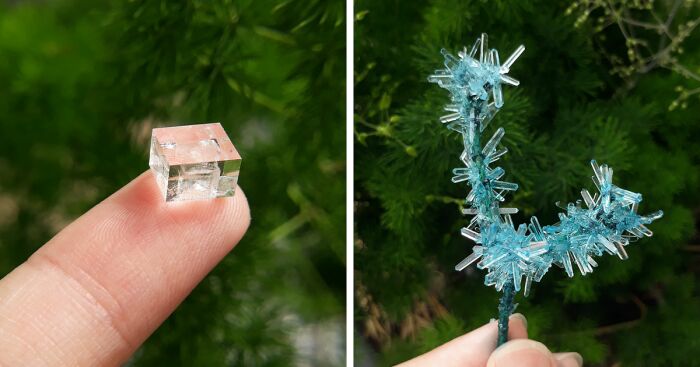
3Kviews
I’m Obsessed With Growing Crystals At Home. Here Are 11 Of The Most Beautiful Crystals I Managed To Grow
Hey, I'm Chase. I first fell in love with growing crystals in high school chemistry class. My teacher asked us to prepare copper sulfate salt. I thought it would look like a handful of sand. The next Monday, I was shocked when she showed us brilliant blue crystals that had formed over the weekend. The rest is history.
It's actually very simple to grow your own crystals at home. You can make these sparkling gems from household materials such as table salt, sugar, and Epsom salt. With some simple chemistry, you can also make compounds that grow into colored crystals.
All the crystals pictured below formed by themselves - they are not cut and polished in any way. As a science lover, it never ceases to amaze me. If you guys want to try it out, I've written a guide on growing these crystals on my blog. Enjoy!
More info: crystalverse.com
This post may include affiliate links.
#2 Monoammonium Phosphate
Monoammonium phosphate (MAP) is a type of common, non-toxic fertilizer. It's also a classic crystal growing compound. If you're first starting out, I highly recommend you give MAP a try as it is the easiest and grows fast. In fact, you can get very nice specimens in just a few days. Better still, they're completely shelf stable so you can use them as decorations.
#9 Mohr's Salt
Mohr's salt is a compound that forms from a mixture of iron sulfate and ammonium sulfate. Many people use it to grow crystals on insects and other objects. This particular cluster grew into a nice flower shape.
#1 Table Salt
Here's a super transparent salt cube. Normally table salt looks like sand, but if you evaporate the salt water very slowly, you get these nice transparent crystals. It's super satisfying to grow a bunch of these, and yes, you can lick them too.
#3 Crystallized Branch
MAP (see picture #2) can also be used to grow crystals on objects. Here's a branch that I crystallized overnight. You can even dye your crystals with food coloring; I added some blue dye to mine.
#8 Iron Sulfate
Iron sulfate is another type of fertilizer. This time, it forms absolutely gorgeous blue green crystals that looks like pieces of glass. Unfortunately, these crystals also oxidize easily and turn brown when exposed to air. Therefore, I have to keep them in an airtight container.
#10 Copper Metal
Besides growing crystals from compounds, you can also grow them with metal. This is a pure copper metal crystal that I grew using electricity. By using a copper pipe as the electrode, I was able to run current through a solution of copper sulfate and grow coral-like structures of metallic copper on the negative terminal.
#11 Iron Copper Sulfate
Crystal growing is both art and science. If you mix copper sulfate and iron sulfate, you might get a different type of crystal. I find the jagged edges very interesting.
That's all from me. I hope you liked my crystals. I love this hobby, and they make me jump out of bed every morning. Until next time!
#4 Copper Sulfate
Copper sulfate is another classic. The compound is usually used as rootkiller, but it also forms striking blue crystals that grow reasonably well. Copper compounds are slightly toxic though, so as much as it looks like candy, don't eat it.
#5 Epsom Salt
Epsom salt is used as bath salt. And it grows fast! There are many guides on how to grow needles of Epsom salt online, but I managed to find a way to grow huge chunky crystals with them. The biggest crystal weighs 126g and took 2 months to grow.
#6 Potassium Ferrioxalate
I made this green compound by dissolving iron rust in cleaning acid. Then, I neutralized the mixture, which gave me an emerald solution. After evaporating this solution, this spectacular rupee formed.
#7 Copper Acetate
I made the copper acetate by dissolving scrap copper in vinegar. After evaporating the solution over 2 months in the storeroom, I ended up with this jet black crystal.
It never ceases to amaze me how you've done this flawless craft! Science is totally cool!
it's beautiful !!!! thank you so much for sharing these beauties with us !
It never ceases to amaze me how you've done this flawless craft! Science is totally cool!
it's beautiful !!!! thank you so much for sharing these beauties with us !

 Dark Mode
Dark Mode 

 No fees, cancel anytime
No fees, cancel anytime 


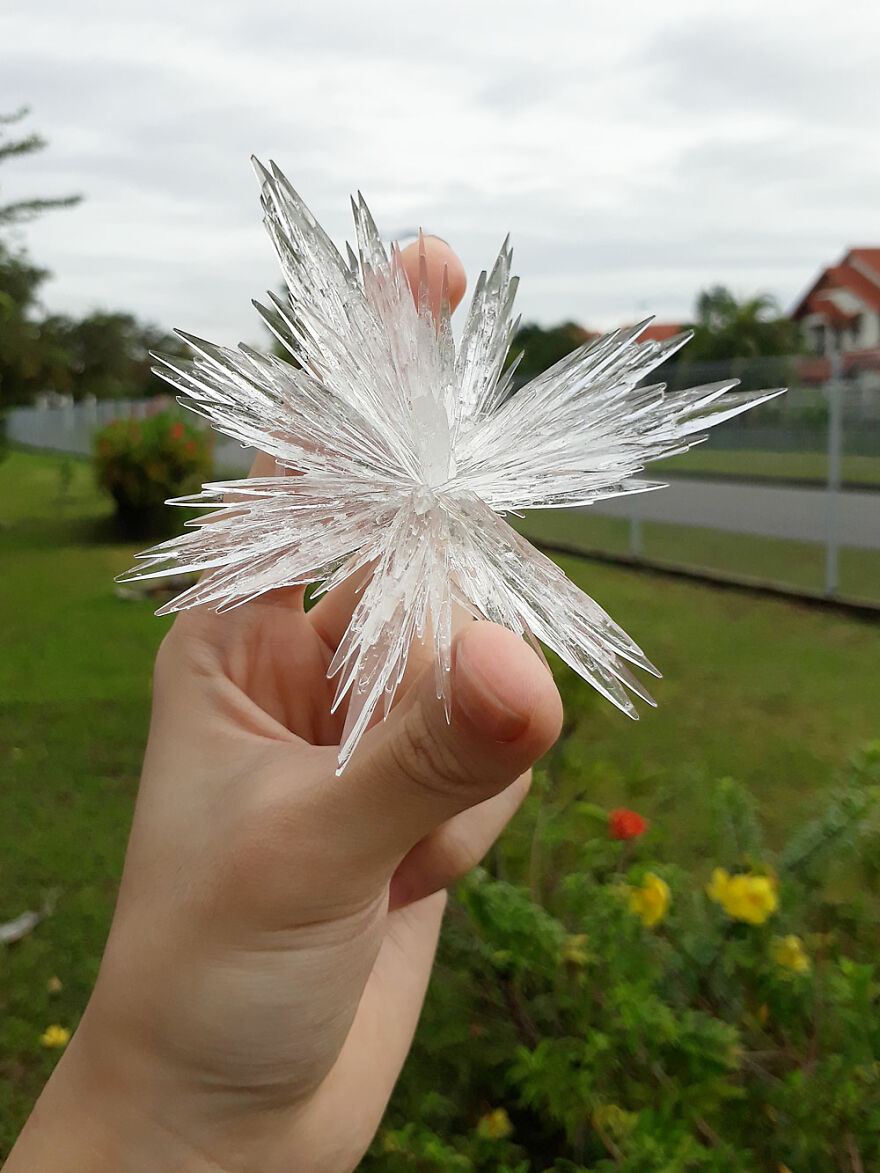


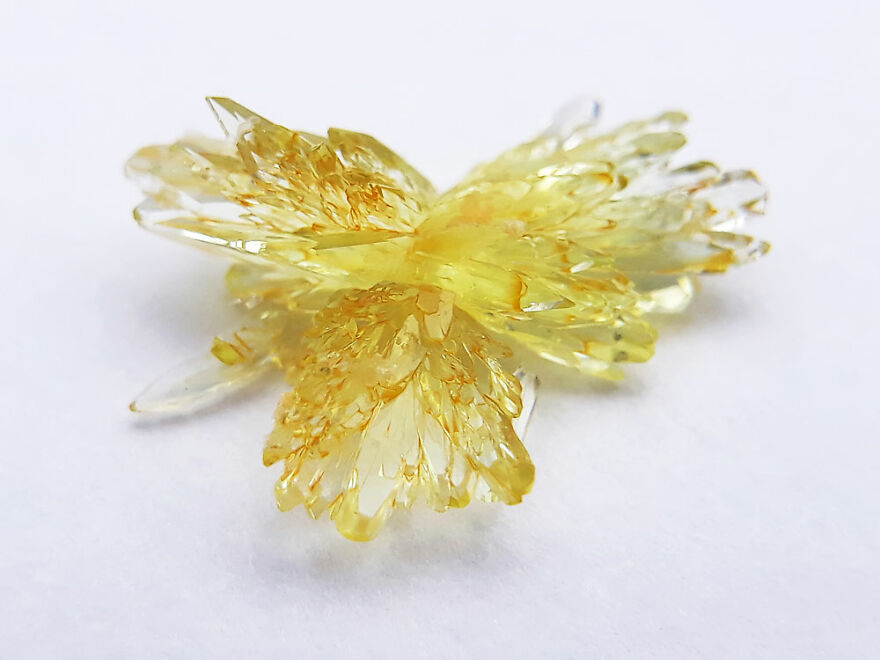
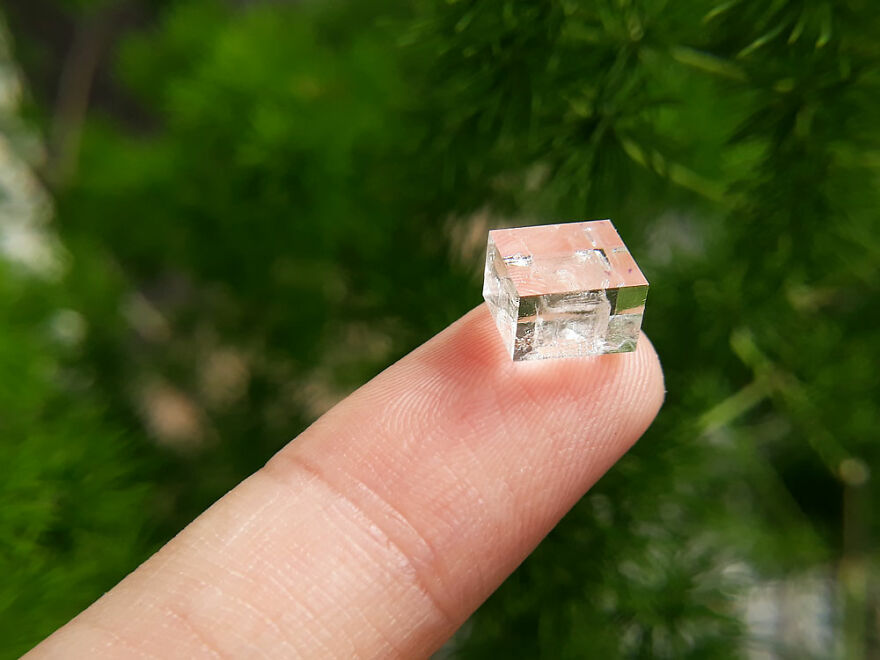
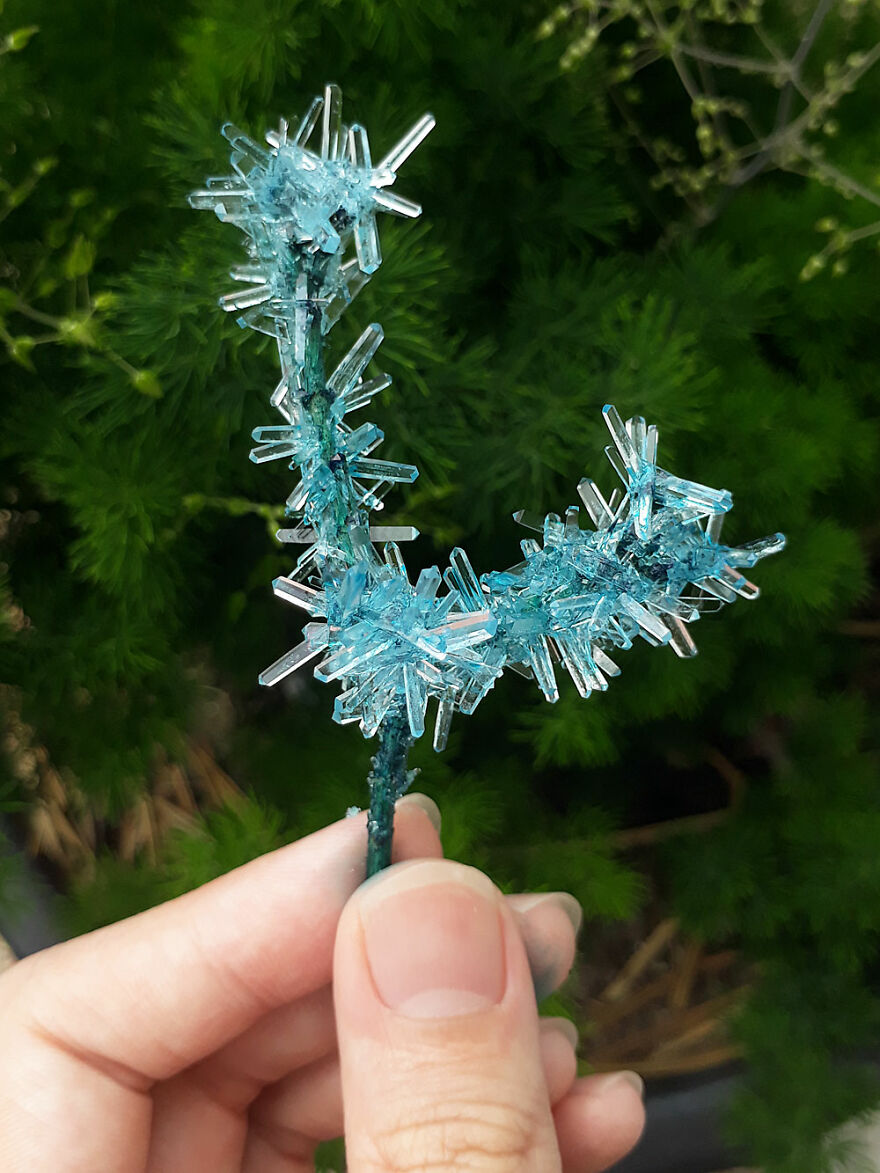
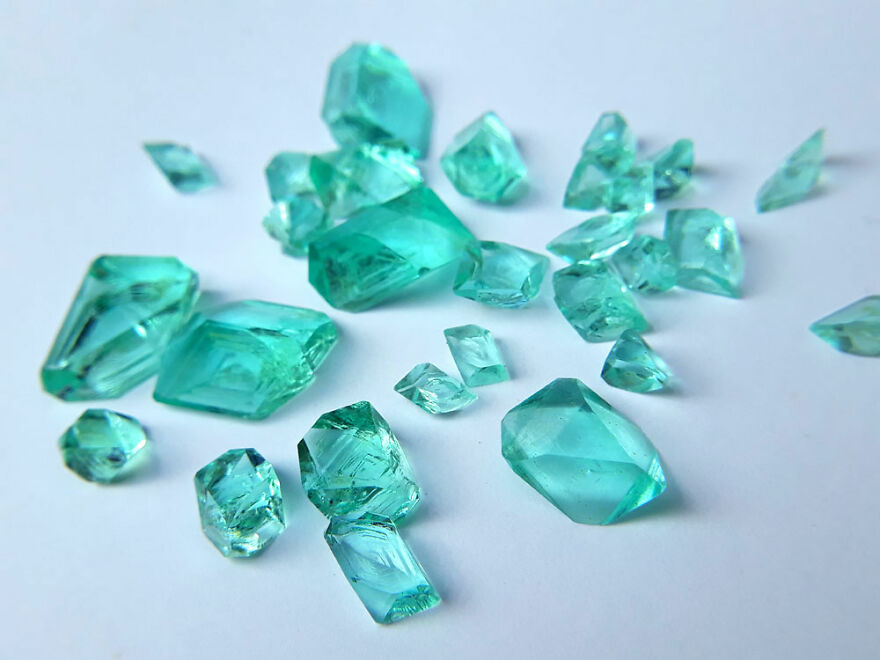
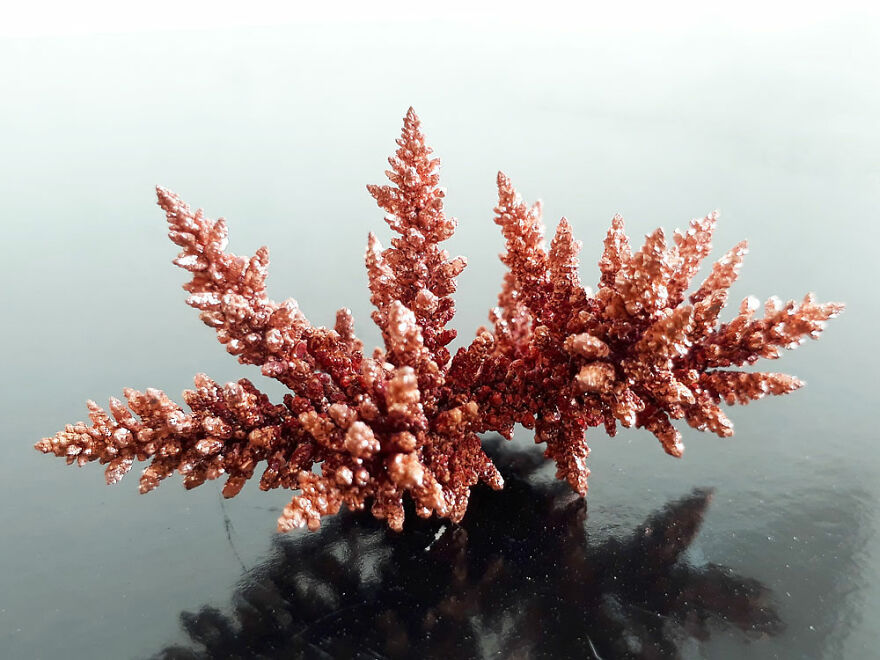
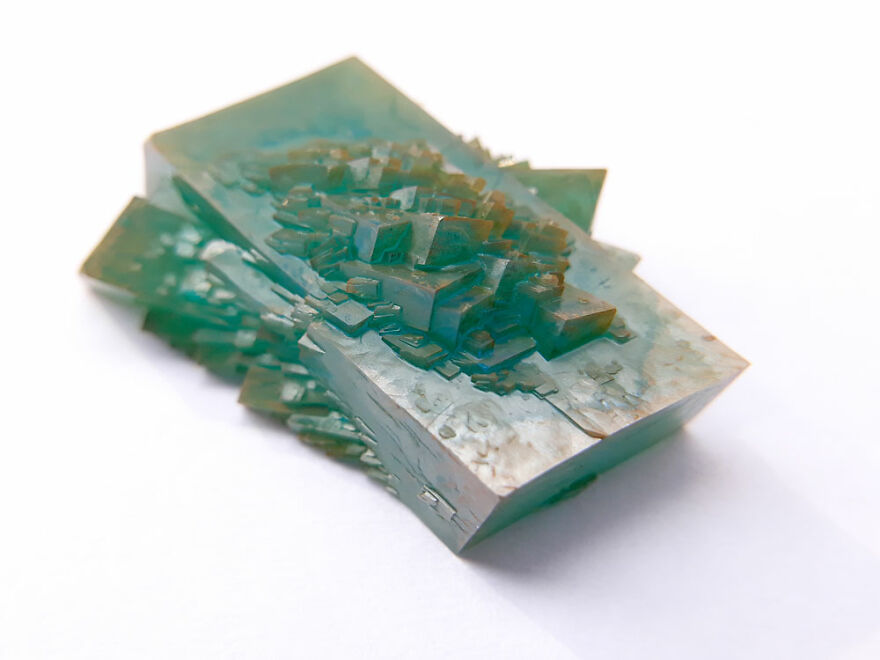
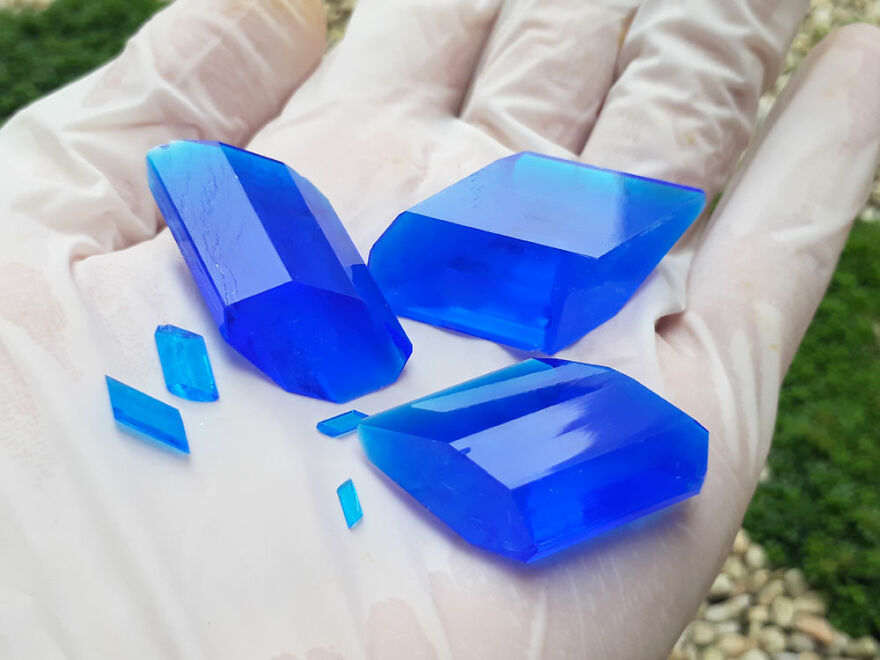
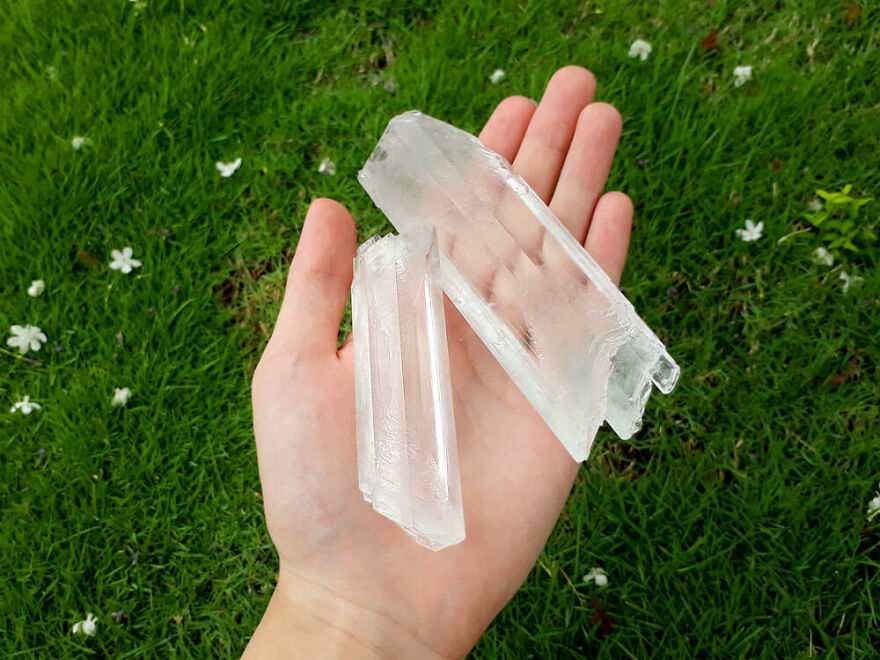




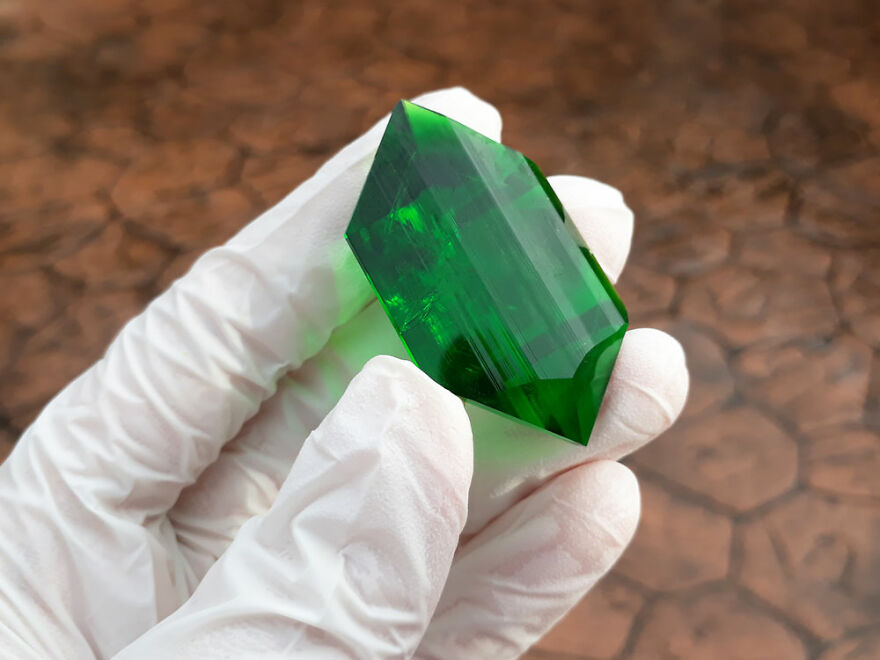
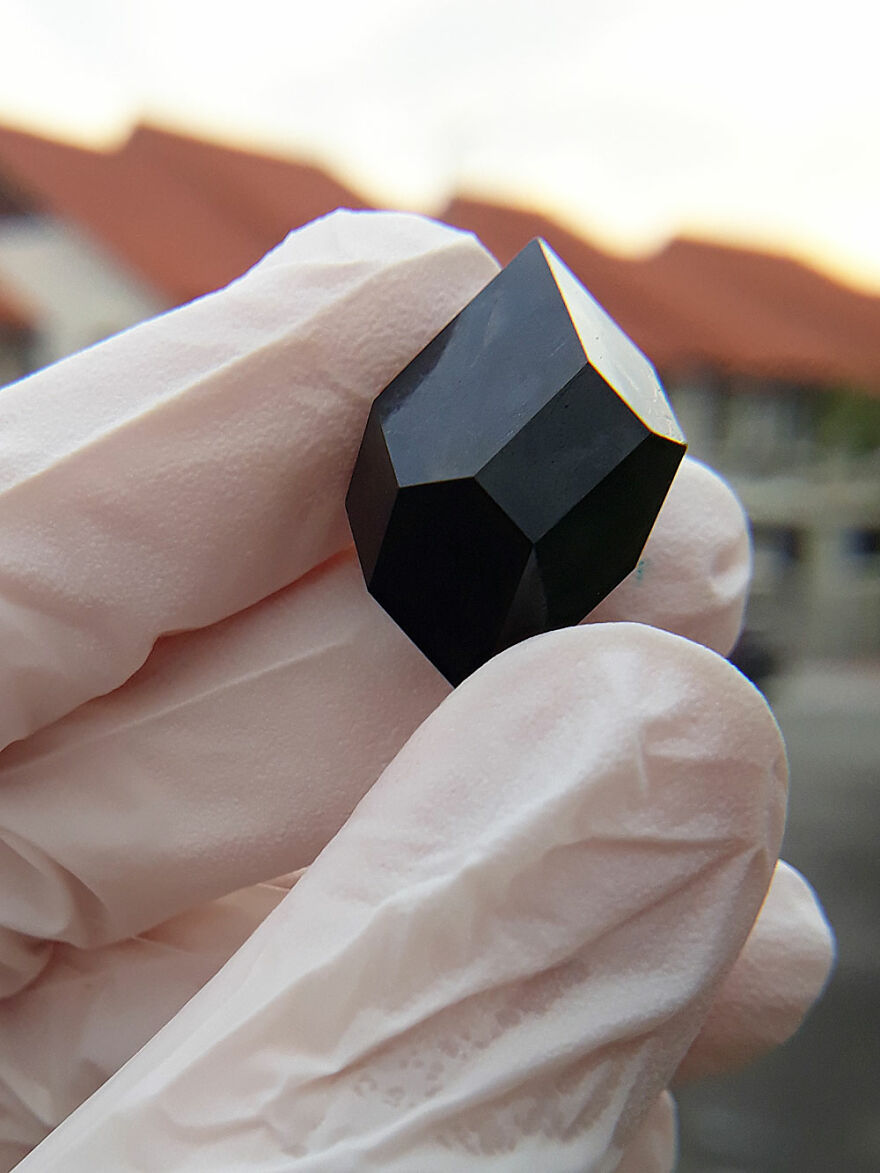



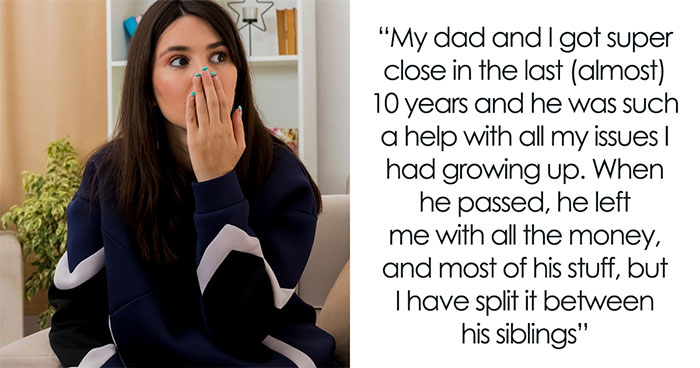

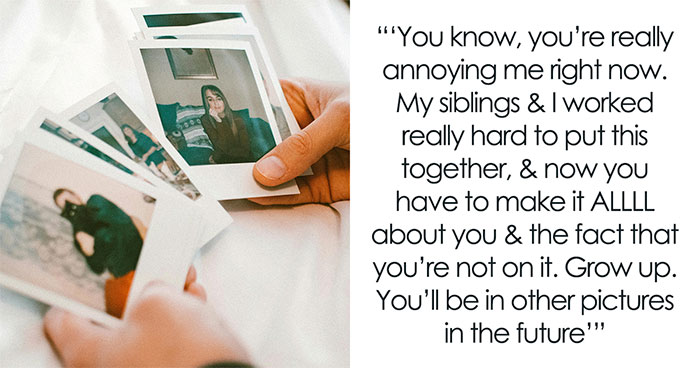
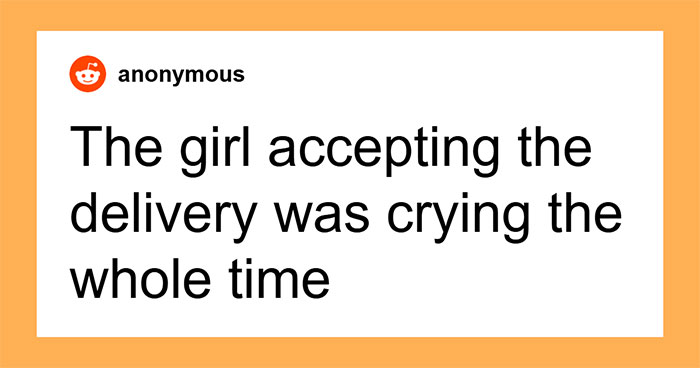

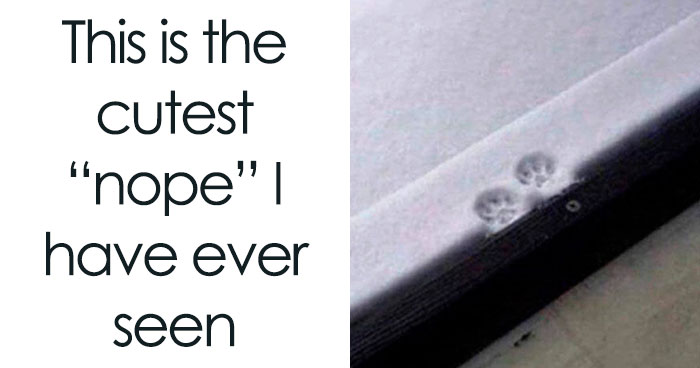


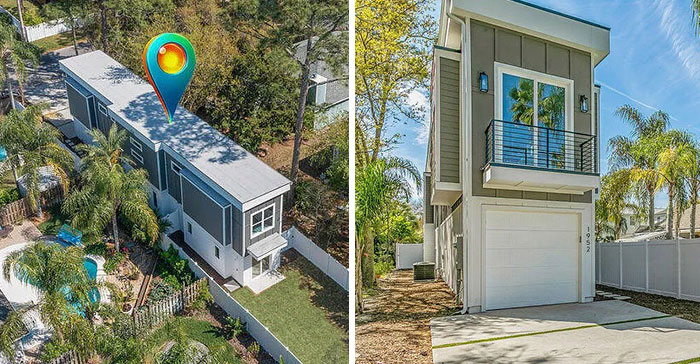

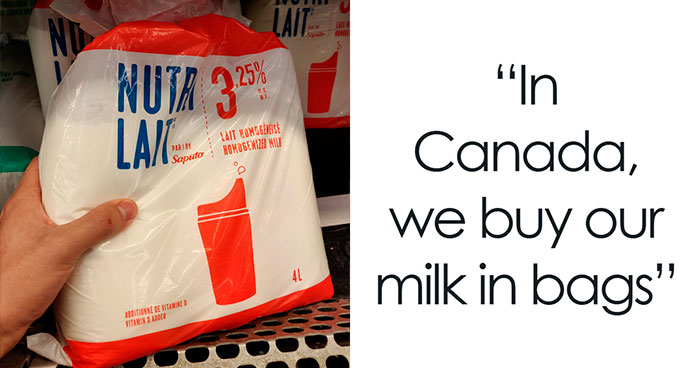



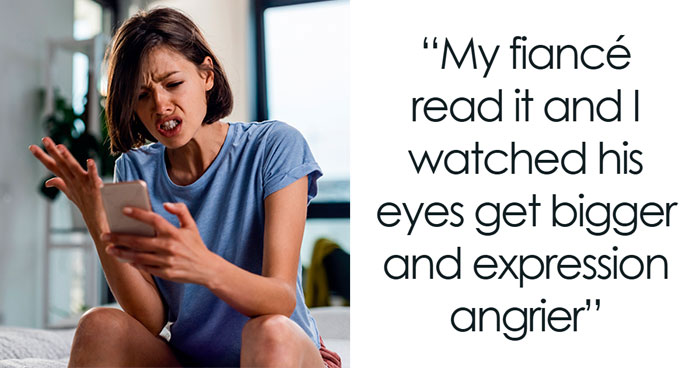

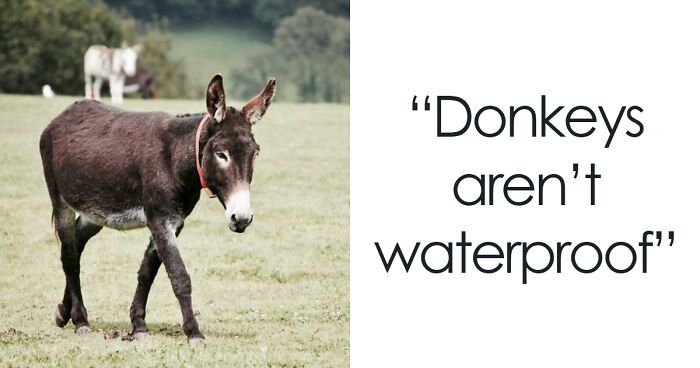

![“AITA For Losing [It] And Screaming At GF To Get Out Of My House After What Her Stepbrother Did?”](https://www.boredpanda.com/blog/wp-content/uploads/2025/01/man-screams-gf-over-creepy-stepbrother-fb18-png__700.jpg)
